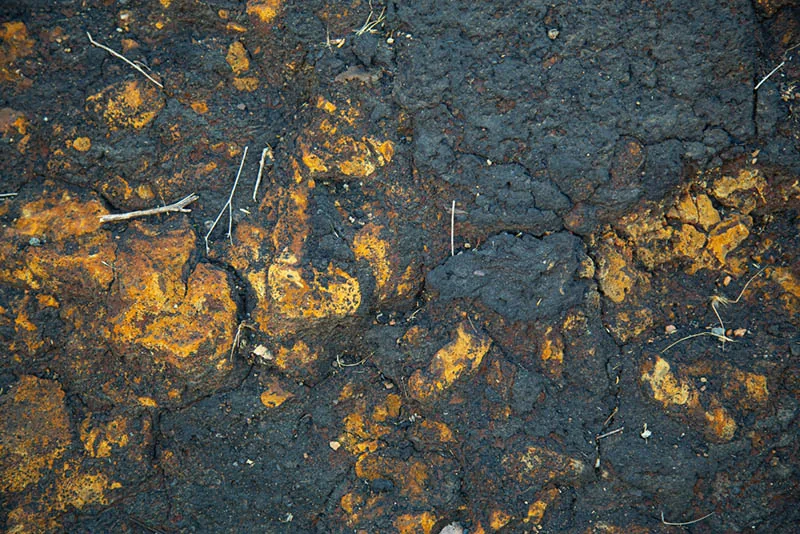The environment has become a prominent but controversial talking point in modern times. We all understand that many of the natural resources we consume are not infinite, and problems like air pollution and waste management aren’t going to go away without taking action.
However, a lot of the headline discourse on environmental issues is going on at a political level, far away from the mundanities of everyday life. This means it’s easy to wonder why should we care for the environment, especially if you’re not glued to the news.
If you’re looking for the reasons why we should care for the environment, this article explores the seven key reasons why the environment and its care should matter to every person on the planet.
What do we mean when we refer to ‘the environment’?
Put plainly, the environment is the sum of all living and non-living things on Earth (including climate, radiation, electrical phenomena, and weather) and their non-artificial relationships and interactions. The natural environment exists on a continuum with environments that are artificial or at least heavily influenced by man.

The environment spans vast natural ecosystems, including rock, soil, water, and vegetation. Natural resources like fossil fuels and the atmosphere are also part. Constituent ecosystems within the environment consist of various forms of life, ranging from microorganisms to animals.
Of course, the environment we experience today has been shaped by the activity of man. Built environments are the opposite of natural environments and have been completely modified and developed to meet the requirements of man. Examples of built environments are farms and cities where the natural environment has been altered or effaced, and something else is in its place.
The environment has been impacted by the activity of mankind with contemporary challenges that include:
- Pollution
- Biodiversity loss
- Natural resource depletion
- Atmospheric and climatic changes
7 reasons why we should protect the environment?
1. Environmental degradation is destroying our health
The material benefits of the industrial revolution to much of the world are undeniable, but one of the major downsides of industrialization has been the massive amounts of pollution generated, with a catastrophic impact on human health.
Pollution generated by industrial processes such as mining, transportation, manufacturing, energy generation, and even food processing is incredibly pernicious, affecting almost every organ system in the body.

In many cases, such as the Dupont PFOA scandal, the DDT controversy, and the Deepwater Horizon oil spill, the environment has been deliberately damaged through the dumping of industrial waste or negligent operational procedures.
Recognized effects of environmental pollution on human health include:
Respiratory disease
Air pollution is one of the most serious environmental issues and has been suggested by the UN to cause over 7 million premature deaths each year. Urban areas are particularly affected by dense particulate pollution that can cause or exacerbate respiratory diseases like asthma, bronchitis, and COPD.
In addition, indoor air pollution due to inadequately ventilated cooking or heating puts over a quarter of the world’s population at risk of developing cardiovascular or respiratory health problems.
Reproductive disorders
In many parts of the world, the environment has been polluted by the persistence of a variety of endocrine-disrupting chemicals. These ubiquitous chemicals, which include pesticides, plastics, heavy metals, and the oral contraceptive pill, disrupt the hormone-controlled reproductive processes of humans and animals.
Reproductive disorders like infertility, subfertility, and menstrual disorders may be driven by the pernicious effects of endocrine disruptors in our environment. Sampled average male sperm counts have decreased significantly since the middle of the 20th century, and the downward trend is accelerating.
Cancer
Environmental pollution has led to the widespread dissemination of cancer-causing chemicals called carcinogens. These substances are incredibly diverse and include byproducts of combustion, pesticides, hazardous waste, and ionizing radiation.
Prolonged exposure to these agents has been implicated in the development of cancers in people of all ages. For example, people living in environments with high levels of PM2.5 particulate pollution are at an increased risk of developing lung cancer.
2. Destruction of the environment puts the global food supply at risk
Environmental welfare is a distant thought when we buy our food from grocery stores and markets, but the effects of environmental damage are evident to the food producers who rely on clean water, fertile soil, and a supportive climate to grow and raise our food.

Agriculture is reliant on the environment but can also be one of the biggest polluters due to the use of pesticides, fertilizers, and the generation of agricultural waste. This essential sector is now being threatened by environmental damage in a variety of ways. Examples include:
- Decreasing biodiversity and soil degradation because of intensive farming techniques.
- Loss of viable agricultural land because of the physical presence of a landfill.
- Long-term land and water contamination from landfill leachate.
- Soil and water contamination due to the improper disposal of hazardous waste.
- Pesticides cause the loss of natural pollinators like bees, wasps, and other insects.
- Land loss because of desertification or flooding, driven by climate change.
- Loss of farmland to construction to accommodate urban sprawl.
The effects of environmental changes may not be apparent in economically advanced countries because they can afford to import food. But poorer countries have a greater dependence on their domestic agricultural production to supply their food. These countries may also be food exporters, putting pressure on available land and compromising food security.
3. Caring for the environment helps us to live productive lives
The welfare of the environment is also important to our ability to work and the wider economy. Pollution has tangible human and economic costs that impact the lives of communities and nations.
According to the Lancet Commission on Pollution and Health pollution and environmental damage cost the global economy up to $4.6 trillion per year, more than 6% of the total economic output of the world! A large contribution to this sum is the loss of human productivity from health problems, polluted land, and population displacement due to environmental changes.

Human activity needs to be sustainable if we are to maintain our environment long-term and lead productive healthy lives. Developing sustainable ways of living and managing the Earth’s resources is, in fact, a major economic opportunity that could lift billions of people out of poverty.
For example, the $65 billion the United States has invested in air pollution control since the 1970s has yielded over $1.5 trillion in economic benefit. New and innovative solutions for the world’s most challenging environmental problems could lead to commercial sectors that every country can access and use profitably.
4. Environmental integrity promotes peace
Though the causes of war are multifactorial, environmental degradation can be a significant stressor as nations and communities compete for dwindling natural resources. Over the last century, there have been numerous domestic and international conflicts as nations and people fight over water, land for agriculture and grazing, and natural resources.

Environmental changes like deforestation and desertification limit the natural resources available to communities. In pastoral or subsistence farming communities, the integrity and resilience of the environment can be the difference between life and death and increases the potential for struggles for the remaining land.
Wars damage and pollute the environment, exacerbating the scarcity surviving people experience. There needs to be a global effort to ensure that environmental conditions do not deteriorate in the poorest and most challenged regions so that people are less likely to resort to conflict.
5. Protecting the environment prevents the displacement of people
Migration is a global issue that is heavily affected by environmental degradation. Pollution, drought, and local climate and weather changes are making parts of the earth uninhabitable for existing populations and leading to involuntary migration.

Environmentally displaced people
These people termed ‘Environmentally displaced people’, have no choice but to leave regions that have been degraded by environmental degradation or natural disasters, leaving them unable to pursue their livelihoods.
Large population shifts because of environmental change
The neglect of environmental issues and subsequent stress and degradation could lead to upward of 200 million people being forced to leave their homeland and resettle by 2050. According to Oxford University’s Refugees Studies Center, countries like Pakistan, Afghanistan, Bangladesh, Ghana, Kenya, and Somalia as well as the Pacific island are already affected by this problem.
6. Future generations will have to survive on the Earth we leave behind
We are responsible for the environmental legacy we leave to future generations. All human activity affects the environment in some way. Sustained negative impact on ecosystems, will lead to the depletion of natural resources and loss of biodiversity, leaving the next generation to inherit our contaminated land, water, and air.

Unrestrained consumption leads to loss of resources
We are currently in the midst of a massive loss of biodiversity, with 25% of wild species facing extinction. This leaves the world a poorer and ecologically scarcer place with the absence of species that may have performed vital but unrecognized roles.
Industry and governmental stakeholders are already aware that the current rate of consumption of natural resources like oil may become critically diminished as the decades roll on. Future generations may not be able to live a lifestyle similar to the ones we’re used to.
However, the outlook isn’t all negative. Recognizing the need to care for the environment returns us precious time to remedy current environmental problems and find new ways to live more sustainably. With effort and investment, we may be able to leave the Earth better than we found it.
7. We are all called to be stewards of the environment we have received
Whatever your belief system, there is an innate understanding of our sovereignty and the need for us to become stewards of the resources that are in our care. Over millennia, mankind has cultivated and tended to its immediate environment with plant and animal husbandry continuing to be a key means of survival to the present day.
But, the mass production of goods and services and careless consumer culture has robbed many people of the sense of responsibility and moral obligation by which efforts could be made to live in a way that is less environmentally damaging. Not caring for or about the environment often serves the agenda of corporate interests that want to sell products at all costs.

Environmental damage for profit
Much of the damage to the environment has not been committed by individuals but by corporations who have exploited environmental resources for profits and polluted carelessly. Great wealth has been generated and is now held by stakeholders who have taught populations the consumerism that is now condemned.
Control of populations
Since the early 20th century, urbanization has accelerated. At the start of the 20th century, half of Americans lived on farms. The number of farms in the US has steadily declined from 7 million in the 1930s to 2 million today.
The impact of this massive shift in how people live, and work is that vast populations are completely disconnected from the land and obligated to be consumers of food and goods with little choice or say in how they are produced. This alienation is often the root of indifference to environmental issues across the world.
Making the individual a stakeholder
Fostering engaged, self-determining communities that care for the environment would require whole populations to regain sovereignty that has been ceded to commercial and governmental interests, with critical thinking and reflection on how the present environmental challenges have arisen.
Many governments espouse behavioral change, sustainability, and reduced resource consumption as the key solutions to the environmental challenges of the 21st century, but without the reclamation of personal responsibility and equitable access and ownership of land, these changes are likely to be cosmetic.
The environment affects everyone
For many people, their immediate environment in a city or town is completely removed from rainforests, rivers, deserts, and the natural disasters we hear about on the news.
Caring for their environment may involve picking up litter, recycling, or choosing to drive an electric car. It is hard to see how the daily activities of running a household and feeding oneself are connected to famines and droughts.
Many countries are geographically and economically shielded from the stark consequences of environmental degradation, but they cannot be indefinitely insulated. Famine, war, and migration are capable of reaching any shore, and decades of unrestrained pollution affect the health of everyone.
Caring for our environment is a must if we want to guarantee ourselves a healthy life, as well as a good life for future generations. Our environment is life-sustaining and must be preserved for all.
How can we save our Earth?
Across the world, people are rightly concerned about the state of the environment and want to take action to make things better. The are numerous initiatives and protest movements that are pressing for urgent changes to the way we live to mitigate environmental damage.
However, the steps that need to be taken aren’t specific actions, behavioral or lifestyle changes. These are superficial as long as the stakeholders who undertake the most polluting activities for profit on an industrial scale can continue to do so without meaningful change.
In many countries, a significant amount of the waste the people diligently separate for recycling is landfilled because it costs ‘too much’ money to recycle. Electric vehicles run on electricity generated by cutting down trees and shipping them thousands of miles to be burnt, all for profit. Groceries clock up thousands of air miles when they could have been grown locally.
Here are some thoughts on how the environment can be helped:
Regain individual sovereignty
We’re only going to care for the environment when we cultivate personal responsibility and see ourselves as stakeholders in the environment we live in. We need to push back against the disenfranchisement that comes with consumerism and dig deeper.
Take time to learn about the state of our environment and its root causes, drawing information from a range of sources that you can critically evaluate. Think objectively about the way we live and the true cost of convenience in advanced economies.
Develop productive local communities
Armed with personal sovereignty, people can come together and reason to gain a collective, objective understanding of why environmental change has happened and what needs to be done. With cooperation, productivity can shift from taking place at a national or international level to a local scale so communities become resilient and truly sustainable.

Strengthen national sovereignty
With strong, locally productive communities, nations become better equipped to manage their environment by harnessing the skills and expertise of their population to develop strong domestic economies.
Rather than selling out to supranational interests, lawmakers and governments can hold these corporate and financial entities to account so that they have to change their polluting activities at their own expense.
As Steve Cohen from the Columbia Climate School states;
“I believe that on a more crowded planet, with instant and inexpensive global communication, a company that engages in wanton acts of environmental destruction will not survive long in the marketplace.”
Develop a less opportunistic global economy
We live in societies that are dominated by the demands of economic systems rather than what is best for individuals, communities, and the environment. This has led to the prioritization of global economic agendas and profiteering at the expense of environmental welfare and authentic sustainability.
Not everything should be done because a profit can be made, but until countries regain their sovereignty, they and their citizens are largely captive to a way of living that damages the environment and generates vast profits for a small group of people.
A step in the right direction would be nations coming together to insist that the crippling debts that prevent poorer countries from developing basic infrastructure for sanitation, waste management, and other environmental problems are canceled.
So why should we care for the environment? Because we need change!
Caring for the environment is really caring for ourselves, but it needs to be done with understanding rather than superficial choices and activities that do not contend with the sources of large-scale environmental degradation.
By making the decision to become an engaged and informed citizen, you can start to build grassroots communities that are truly sustainable and hold the sovereignty and power to hold the corporate polluters to account.













